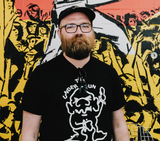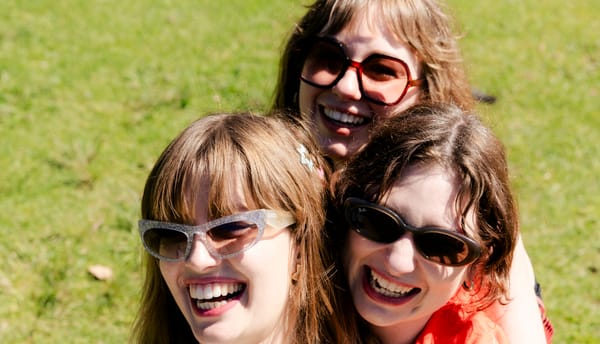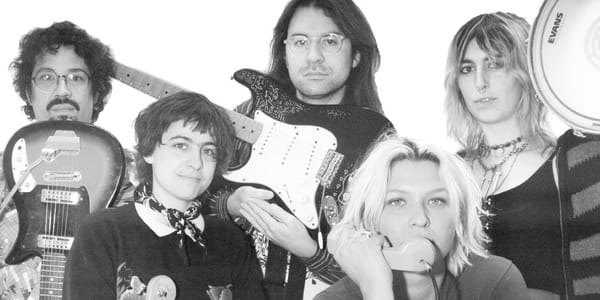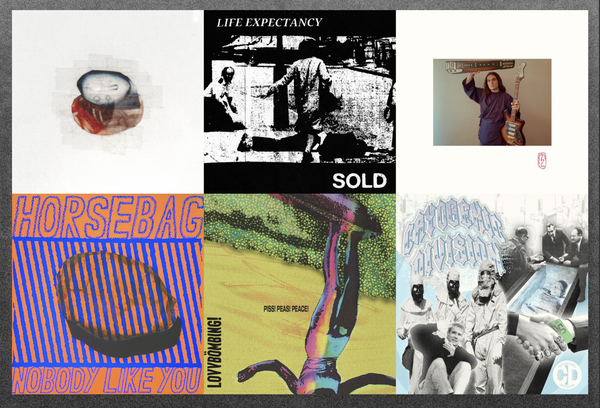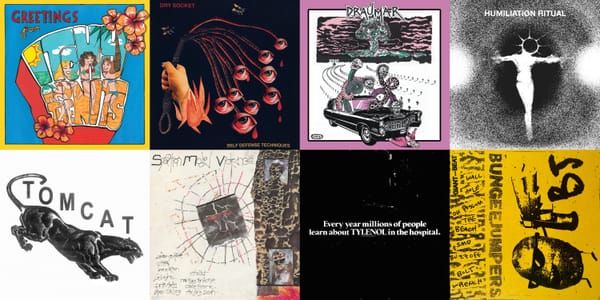s.o.h.’s kristine nevrose is a hardcore powerhouse, activist, and doctor
Following the release of the deeply sick album Cost to Live, we discussed punk as protest and the many lives she lives in Los Angeles.
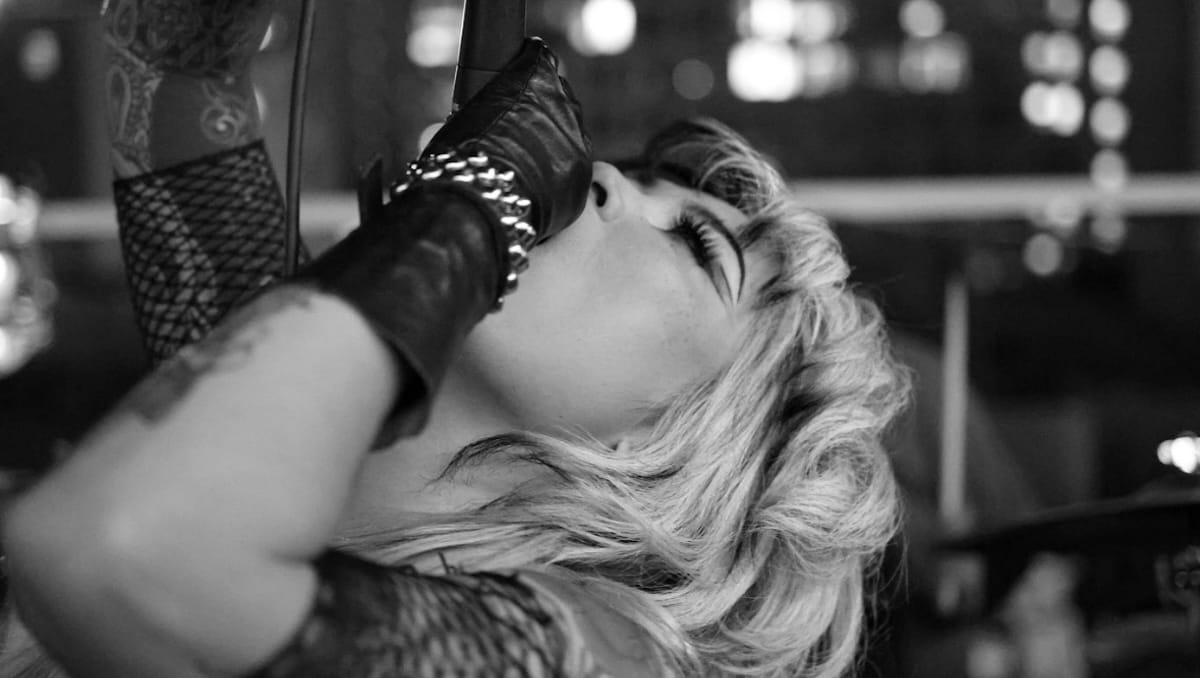
Kristine Nevrose was jetlagged when we spoke in September, freshly home from a trip to Croatia. “I’m a big Game of Thrones dork,” she says, revealing that the show’s filming locations were a major reason for this particular vacation. “I was like, ‘I need to see the Red Keep! I need to see Littlefinger’s brothel!’” Not long after returning, she participated in a protest shouting “free free Palestine” in West L.A. It makes sense given the political anger inherent to the hardcore band she fronts, S.O.H. “This is not just some facade, like singing along to whatever. I use punk as power. Your voice, you’ve got to use that as your tool and your weapon.”
Nevrose’s voice is undeniably a weapon in S.O.H.; she’s a wild and unpredictable presence, growling and snarling and howling alongside this massive, burly hardcore attack. Short for System of Hate, the band released their debut album Cost to Live in September; it just got a new release from the always quality Indonesian hardcore tape label the Seats of Piss. The band previously released an EP in 2022, and Nevrose has been in punk bands for about a dozen years including Flaamingos and the Tissues.
The new S.O.H. album is filled with songs that are pointedly anti-colonization and anti-complacency. “What’s your say in this revolution?/Wearing its name but no real action,” Nevros screams on “Generation.” Activism and music link arms in Nevrose’s life. She’s co-organized Punks for Palestine, throwing affordable all-ages shows, touting safe spaces and a spot to “bring your own meat”—a community punk DIY barbecue and protest.
Early in the conversation, she asked how I was doing, and I mentioned that I’d been dealing with a headache that day. She encouraged me to drink a lot of water, and later, I learned that’s not just some common sense advice we should all be following—Nevrose is a doctor. She’s also an actress who’s starred in multiple short films. Out in Los Angeles, Nevrose lives so many lives. It just so happens that in one of them, she screams at wild crowds and makes pretty incredible hardcore records. (This conversation took place in September; events across the world and specifically in Los Angeles since then render this piece as something of a time capsule.)
When other artists use the aesthetics of punk as a vibe without digging into bigger picture real world shit that’s going on right now, do you see that as a wasted opportunity?
All the time, unfortunately. I feel like there's so much cooler shit that we can talk about. I mean, I get it, though. There's vibes. I can't look at a band and be like, “Oh, wasted opportunity,” it’s just like man, there's cooler things to talk about. There's bands that just want to talk about drugs, sex, rock’n’roll, and I totally get that. Sometimes we want that and that's cool, too. But I think we should really focus on keeping society focused on what's really going on because a lot of people are getting tired, I think. I've been going to protests again since the shit that happened and now the crowd’s dying down.
Your record really sounds like a band keeping its foot on the pedal of punk as activism. S.O.H. is really active right now; are you feeling a lot of energy for activism right now?
I do. When I came back from Croatia, we had a layover in Amsterdam, and I was like, “I have to fuckin’ see Anne Frank’s house.” I had to do so much research. I researched how Nazi Germany was doing all this shit in 1933 and fuckin’ the United States was over here like, “Oh, well they’re doing whatever they’re doing,” right? And they’d been doing this for fucking nine years until America was like, “Fine, we got bombed in Pearl Harbor, I guess we can join in.” It took how many years for us to watch all this shit happen? It just got me more mad to realize how many years is it going to be for us to figure out when we’re going to actually get involved and say fuck you, you know?
You mentioned you played in some post-punk and art punk bands, whereas S.O.H. is so much more aggressive and visceral. Do you prefer it?
I love it. I personally love it because it’s just rage and energy and fun. But I’m also in another band that’s more anarcho, post-punk, darkwave kind of shit. I love doing music. If I could sing blues, I'll do the blues, as long as I can really sing about heartache.
It seems in these S.O.H. songs that you inhabit multiple voices or characters throughout a track. Is that how you think about it?
Yeah, whenever I hear the songs, I’m like in a movie. For example, we have this song called “All Heart” where it starts off very slow, and I'm like, “Ooh, I'm in this trance of sadness,” and I want to give that genuine feeling instead of just like, “I gotta be tough 24/7.” We have elements of sadness too, where we can be sad but tough.
The lyrics across this album are so direct, but there’s one song I’d love to know more about since I don’t speak the language: “Walang Paglaya.”
The lyrics are in Tagalog. I’m Filipino, and it translates to “No Liberation.” This song gets me very deep in my presence because I grew up in a Filipino cult. It was a very deep religion that I'm even afraid to talk about because in the Philippines, if you get out of this religion you potentially can get murdered.
Jesus Christ.
Yeah, but I’m not afraid because fuck them. Anyway, I got out of it, my brothers barely got out of it when my dad passed away, so my dad kind of was the main source. But it's pretty much about religion, religious freedom, and…you know when you translate something it doesn't sound as deep as in English? There's a part which means “was it you that got chosen,” because in that religion, they're pretty much saying that everyone's going to go to hell besides us. I've lived that life of guilt for all my life ever since I was like 18, thinking, “Man, if I get out of this religion, I'm going to hell.” I just wanted to write that song about being free from generational forced religion.
When you write something like that, a song that’s deeply personal and about your experience, do you think about how it would connect with somebody else who’s similarly dealing with this intense religious weight bearing down on them?
Yeah, I wrote it specifically for those people because I know how scary it is. It's still scary for most people, like I have a French teacher. She’s Muslim and she talks about how she wants to have a dog and she can't because the dog saliva is haram, right? So it's just little things like that where I just wish I could say, “It's OK.” The weight of guilt people have, it's crazy to me how there's these rules and you can never just get out of those, even a little bit.
What’s something you want to accomplish with S.O.H. that you haven’t had the chance to do yet?
I want to play as many shows outside of our hometown. I'm like cool, we played L.A., we’re good to go. But I want other people to experience like our lifestyle and what we’re about. We just toured Mexico City, we toured the East Coast, we're on our way to Japan next week, and I can't believe it. I can't believe other places want to hear us, are asking for us. It’s crazy, like we don't even have an Instagram.
We try to be as DIY as possible, like how back in the day people would talk about how bands were cool and found out through word of mouth instead of like, “Here's a poster, and here's an Instagram of us, look how cool we are with all our followers.” We don't want that. We want y'all to genuinely listen to our album and like us for who we are. We just wanted it to be more like if you know, you know, and if you like fuck with us, you fuck with us, and that's it. We don't really care about being popular.
I’d love to know more about the scene out there right now.
I mean, we make our own scene. In my brain, I feel like we have our own scene. I don’t think there’s just one scene, because L.A. is such a huge place. Me and this girl named Juju, we have our own little thing. We created Punks for Palestine in Los Angeles. We've been doing a lot more community fundraising. We don't do shows for more than $10. We give it back. We're starting this new thing called BYOM, which is really fucking dorky, but it means bring your own meat. And we bring a grill to the shows and everyone just grills shit. We eat stuff and we just share within the community. That's my goal is to just literally have very cheap shows, feed everybody, and have a good time. No drugs. That’s my goal.
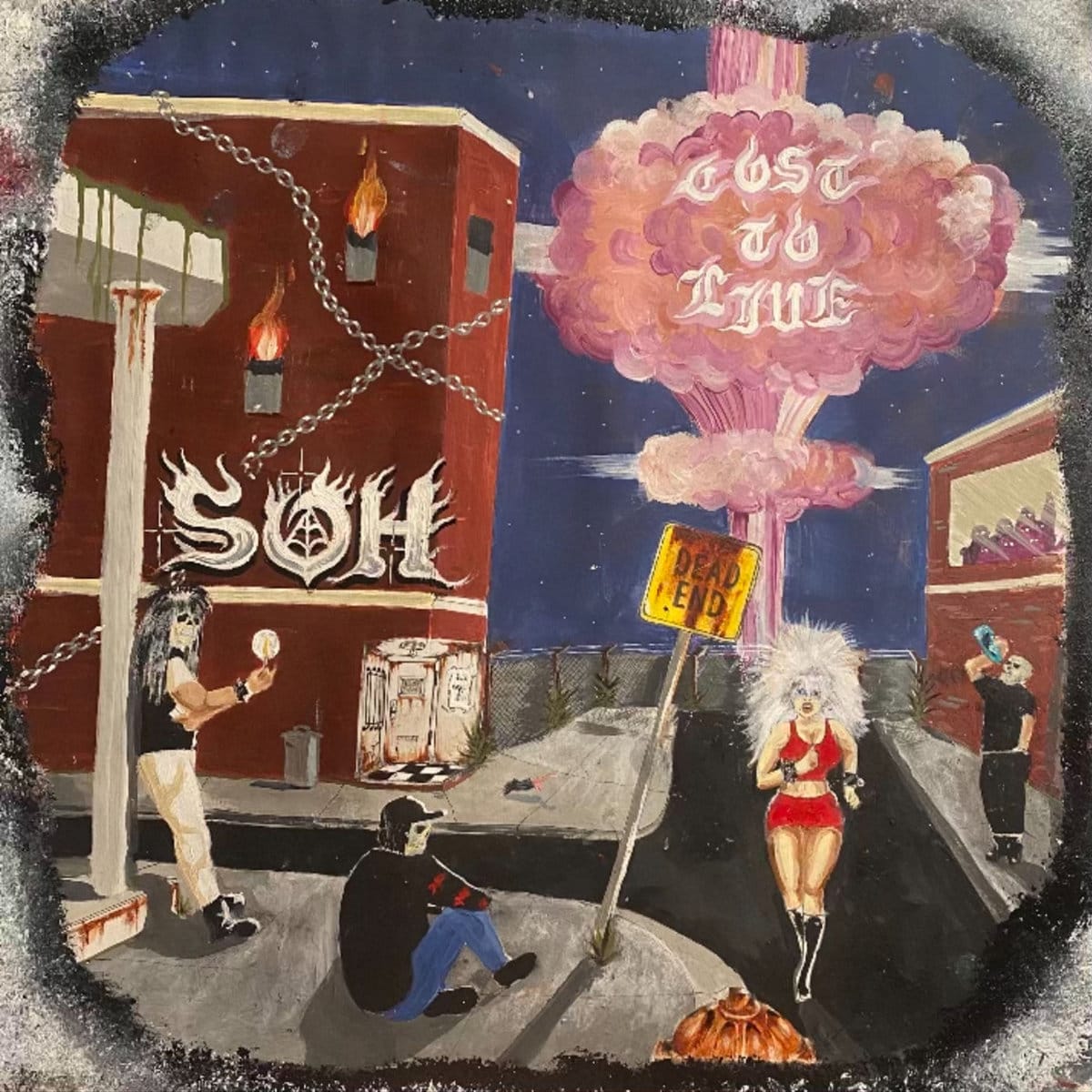
No drugs on the straight edge tip?
I mean I smoke weed here and there, I’m not saying you should be straight edge or anything. But if we want to have an all-ages community where I want younger people to listen to our music and look up to us, I don’t want to have people being like, “Oh I was so drunk, sorry if I talked to that girl who was 17.” You know what I mean? My dream is to have a genuinely safe community.
With so much going on, what do you think people out there who might be unfamiliar with your work should focus on first?
Maybe I’m being a narcissist or something, but I wish people would look at our record and actually read my lyrics. That’s where my heart is. Some people are like, “Oh, this song’s cool but I don’t really know what they’re saying.” I want people to read. I write poetry and I love books. I’m a big book nerd, too. I want people to know that we’re also intelligent. People look at us and they’re probably like, “You’re not that smart,” and I have to show them that I’m an actual doctor in real life.
Wait, you’re an actual doctor in real life?
I’m a health care provider. I have my doctorate in pulmonology. I try not to talk about it online or anything because I hate mixing it because it doesn’t match. When I’m at my profession and they’re like, “What’s up with your tattoos?” And I’m like, “Ahhh, why do I gotta talk about my tattoos when I’m trying to order a chest x-ray for my patient?”
OK, so you’re a different level of busy. Where do you find yourself writing poems and songs?
Everywhere. I work from home and then i visit my patients, but sometimes, I'll be driving and I’m like, “Oh shit, I want to write this piece.” I had a patient recently—he had a Bart Simpson tattoo. He's probably in his 20s and he’s vegetative. I’ve never had a conversation with this man for a year. Out of nowhere last week he’s like, “EY!” I'm like, “What?” And he's like, “How are you?” He’s trying to articulate and I’m like, “Do you know who I am?” And he’s like, “Yeah.” Sometimes I play Simpsons music in the background so I can be like hey I’m here. When I was driving, I’m like you know what, I’m gonna write about how beautiful our access to health is—how lucky we are to breathe on our own and talk on our own and walk on our own.
Between that story, your career in general, and the BYOM community-oriented Punks for Palestine stuff, it seems like you’re often thinking about other people.
I try to. I mean, it's my culture too. I’m Filipino and that's how we were raised. I remember when I was young, I couldn’t fathom or understand TV dinners because I'm like, but how are we going to share? In Filipino culture, that never existed. It’s always a meal that’s shared, so that’s always been my foundation.
see/saw is a reader-supported publication. If you enjoyed this interview, please consider a free or paid (or bartered) subscription.

